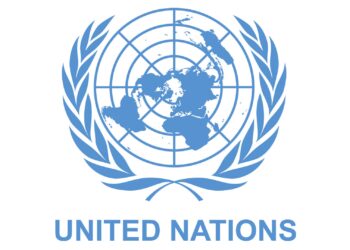The United Nations Conference on Trade and Development (UNCTAD) has warned developing countries especially in Africa facing a high risk of debt distress against issuing more Eurobonds.
According to the East African, the UN Agency through its latest trade and development report said the issuing of high-risk bonds also referred to as non-investment grade or junk bonds attracts high costs due to the risk premium investors demand.
The report stated that this has huge implications for the debt dynamics of the affected countries struggling with low economic growth rates.
- “Implicit borrowing costs, gauged by yields, are substantially above existing borrowing costs, as measured by the average weight of existing bond coupons. The difference is especially large for non-investment grade countries,” the agency says.
- “Consequently, countries capable of issuing bonds do so at higher coupon rates, compared with bonds being currently repaid. This has detrimental effects on debt dynamics, especially in a context of low economic growth, and more broadly on the allocation of public spending.”
UNCTAD cited Benin, Côte d’Ivoire and Kenya, who had been barred from bond markets for most of 2022 and 2023, among eight non-investment grade countries that raised $17 billion through Eurobonds in the first quarter of 2024.
On the other hand, five countries rated investment grade issued bonds for $28.5 billion.
In total, bond issuing by developing countries in the first quarter of 2024 soared to $45.5 billion a record high.
The UN Agency noted that since early 2024, sovereign bond sales for some developing countries have resumed bolstered by the expectation of interest rate cuts in major developed economies.
- “Strong bond issuance in the first quarter of 2024, though uncertainties persist for the remaining part of the year and market access remains uneven,” The agency says.
- “The debt and development crises faced by many developing countries continues to worsen. The increase in public resources and export revenues that must be channeled towards public and publicly guaranteed debt service (to cover both the principal and interest payments) is a key dimension of the current crisis.
The report further stated that developing countries paid close to $50 billion more to their external creditors in 2022 than they received in fresh disbursements, with private creditors accounting for most of the change in the direction of net transfers.
While between 2021 and 2022 debt service to these creditors remained stable (at about $260 billion), disbursements declined by 45 percent, from over $300 billion to less than $170 billion.
The decrease in private creditor’s appetite for developing countries public debt resulted in the lowest disbursement levels since 2011.
This decline stems from various factors, including higher interest rates in developed countries, deteriorating global financial conditions and mounting concerns about debt distress in developing countries.
What to Know
- In January, Cote d’Ivoire’s Eurobond attracted a subscription of over $8 billion from more than 400 investors as the country raised $2.6 billion through two bonds with tenures of eight and 13 years respectively, at single-digit interest rates.
- In February, Benin received $5 billion demand against a target of $750 million on a 14-year bond priced at 8.375 percent. The country’s sovereign bond was oversubscribed by six times as demand for riskier assets in the emerging markets grew, amid expectations that the Federal Reserve will reduce interest rate this year.
- In February also Kenya’s National Treasury issued a $1.5 billion Eurobond that was priced expensively to global investors to be able to make partial repayment of a $2 billion bond that is maturing in June and allay fears of the possibility of default.

























